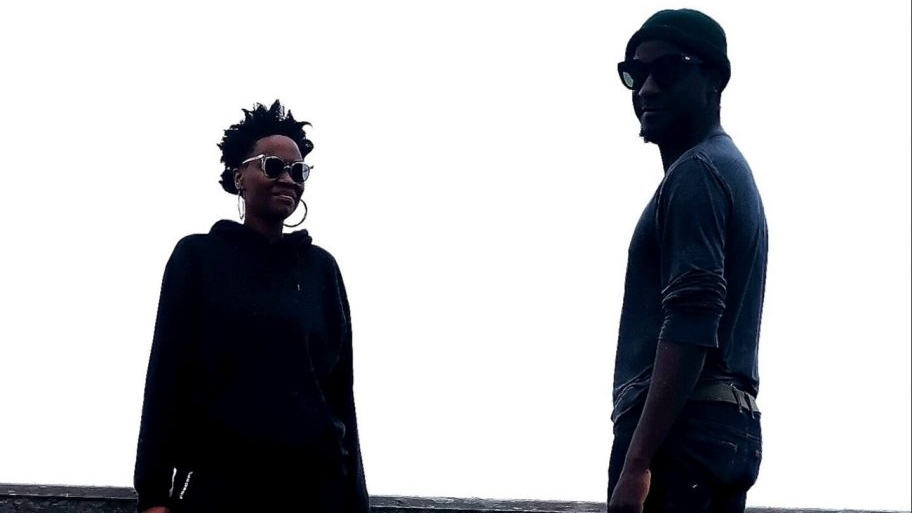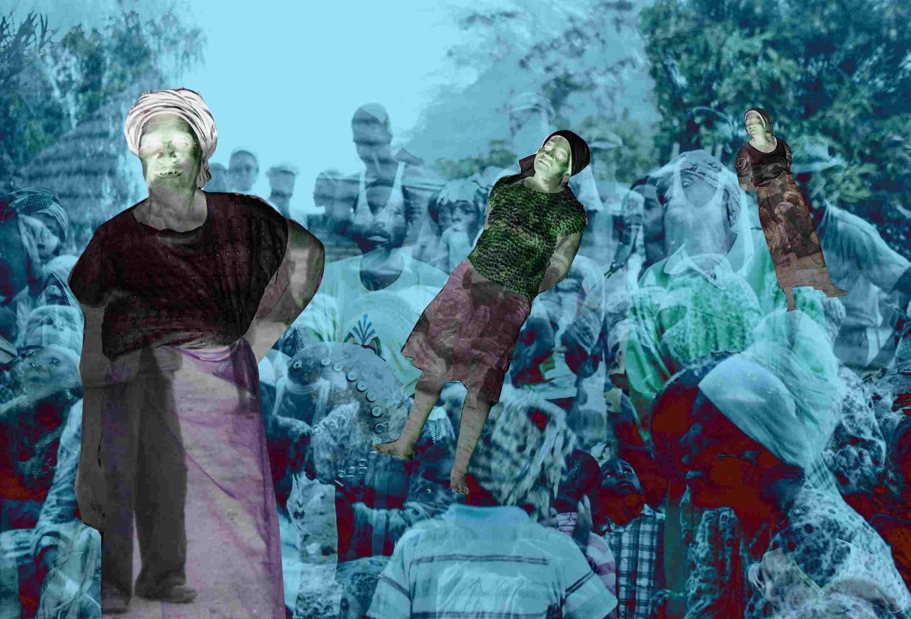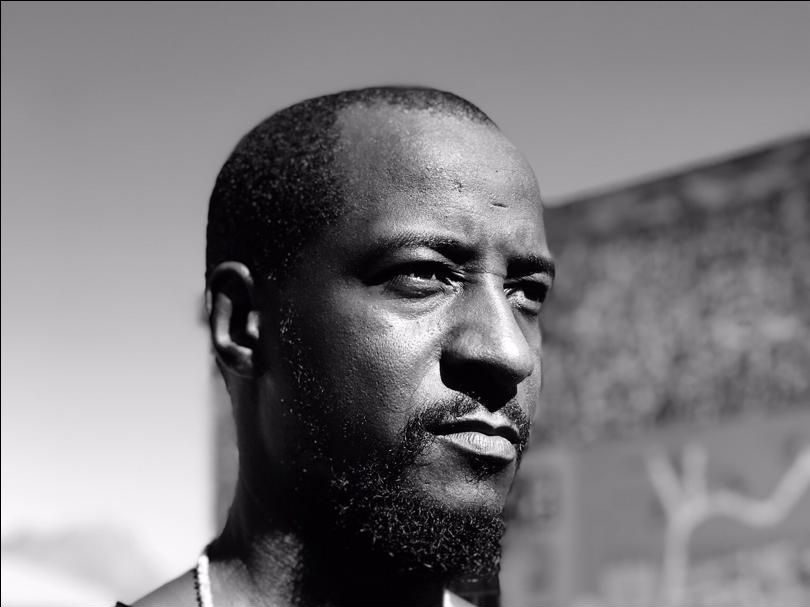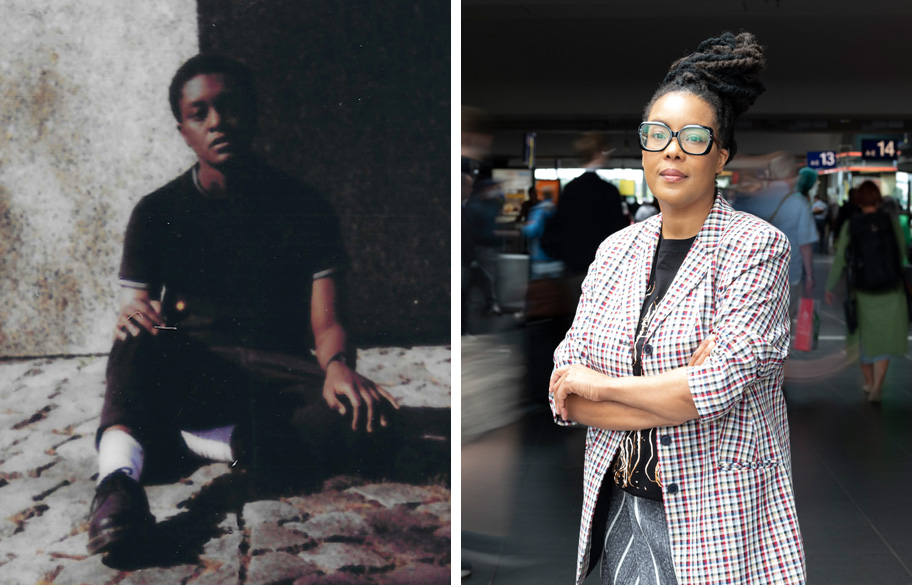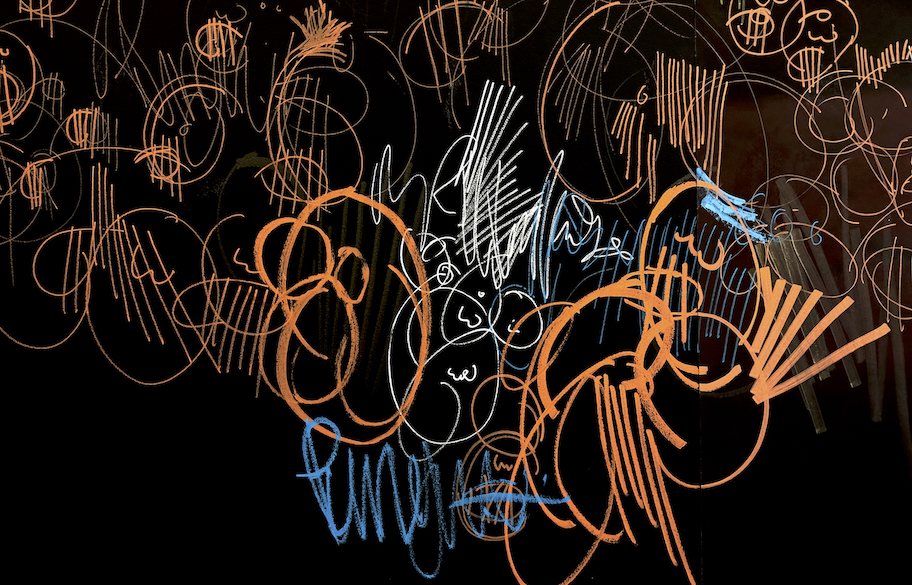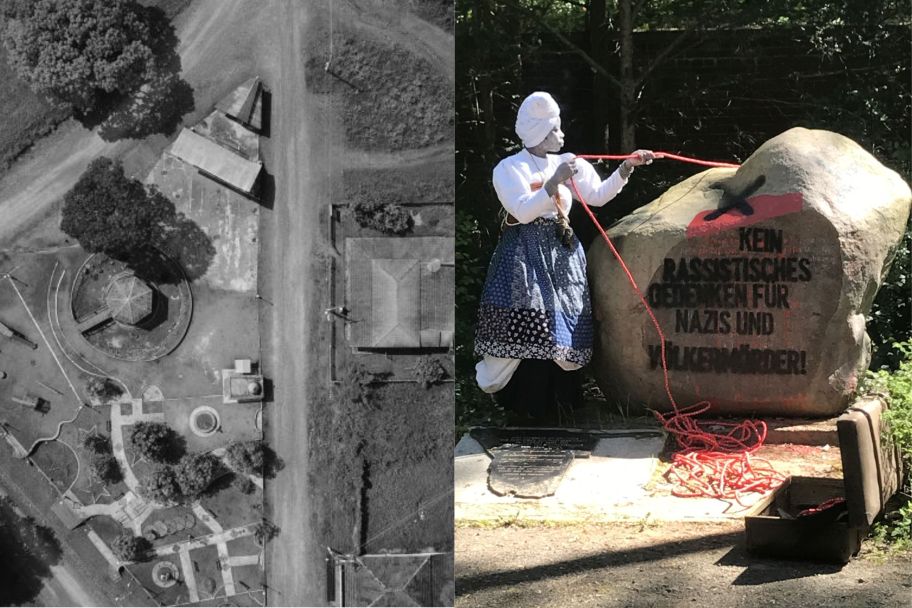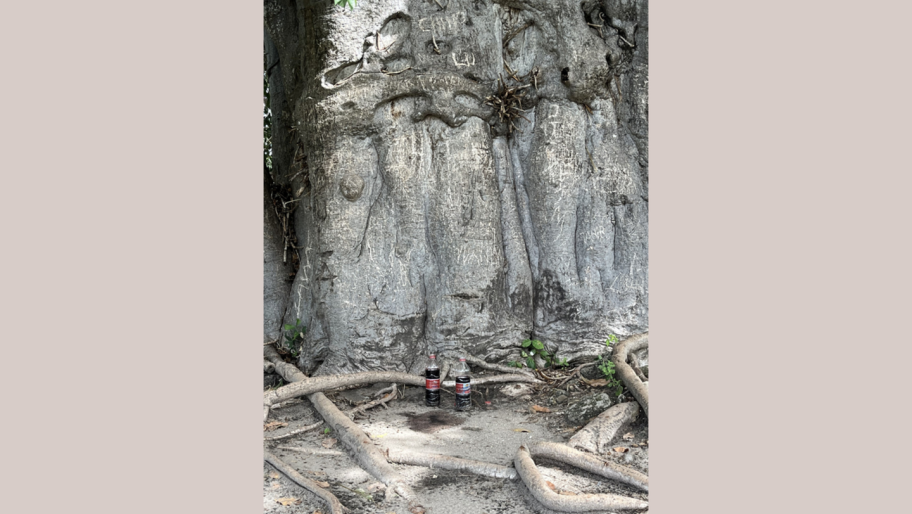Namibia / South Africa / Zimbabwe, Music & Sound, 2021
Listening at
Pungwe
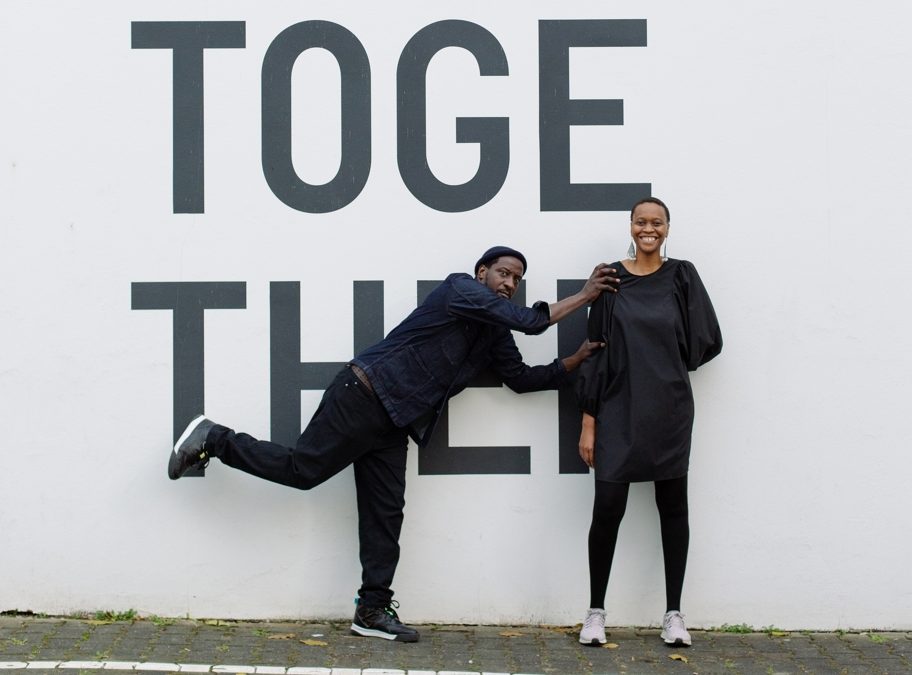
An archive without a body is not an archive. A body without an archive is not an archive.
Memory Biwa and Robert Machiri, known as Listening at Pungwe, are a multidisciplinary collective working between Windhoek (Namibia) and Johannesburg (South Africa). Their practice deals with archived memories – which frailly echo traces of life and movement – as well as transcendence linked to the violent colonial legacy and its implication on contemporary lives. Their work focuses on Namibia and Zimbabwe.
A historian, witness, and artist, Biwa deconstructs colonial academia and how it defines the nature of archives as static non-lived spaces, inaccessible to most, that hold memories. By re-entering their material state(s), she re-links archived stories back to the living, where they are embodied through oral testimonies and transcend across generations as resistance to forgetting. To complement a pungwe, an a/wakening, Machiri works with sonic, visual, and oral histories, grounding them in a sense of resurgence – from crates, in reel-to-reel machines, or at the mixing desk. Together they restore a pungwe, a way of living with and in the corporeality of archives. That which is beyond, behind, or ahead of time and space. That which repudiates colonial violence in the way stories are stripped and segregated of communal and spiritual exchange. Their work is a reclamation of what is yet to be forgotten. In their practice, pungwe, a Shona word for wake, is a commemoration of chimurenga (roughly meaning “revolutionary struggles”) through an all-night celebration of the dead, and a recalibration of the living to face the coming dawn and new day of resistance.
Pungwe practice goes beyond the Earth’s crust and deep into embodied and relational realms, becoming a re-a/wakening to create speculative, imaginary modes through which stories and histories can be retold and re-lived. It is a conversation between ancestral and contemporary African sonic cultures chartering new archives from written documents, digital machines, reel-to-reel recordings, oral testimonies, and other material sources. In their sonic experimentations at night, Listening at Pungwe re-enter the archives as a way of disrupting memories to re-awaken the dead and the living in a communal experience. In their performances and installation work, they induce themselves and their contemporary voices into the story of the archive, to de-archive and re-archive a living memory that summons spirits of the past-present continuum.
Their work has been shown and performed at 100 Jahre Donaueschingen Musiktage, Donaueschingen, 2021; Manifesta 13, Marseille, 2020; Dak’Art Biennial, IFAN Museum of African Arts, Dakar, 2018; SAVVY Contemporary, Berlin, 2018; Colonial Repercussions, Reflecting On The Genocide Of Ovaherero And Nama Peoples 115 Years Later, Swakopmund, 2019; Museum of Science and Technology (MST), Accra, 2017; ICA Live Art Festival, Cape Town, 2017; John Muafangejo Arts Centre, Windhoek, 2017; DeutschlandFunk Radio, Germany, 2019.
Text: Kamila Metwaly


